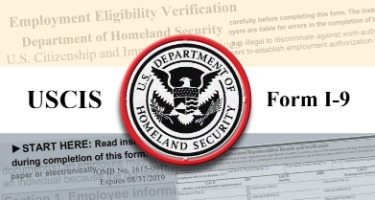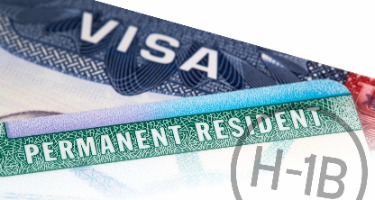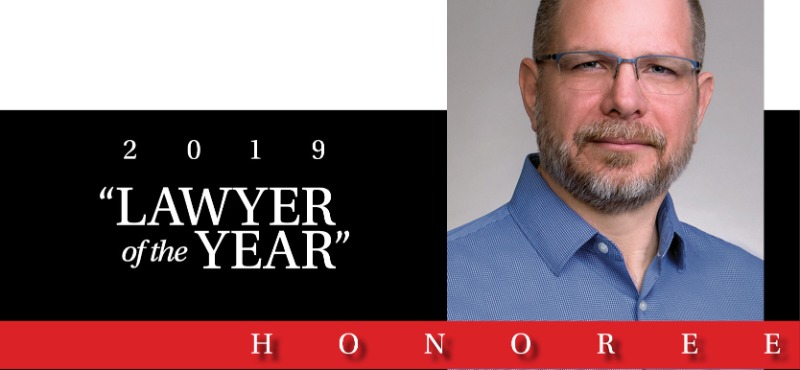The importance of conducting immigration-related due diligence when a company undergoes a corporate change cannot be overstated. However, as many immigration practitioners will attest, this key piece of the puzzle is often overlooked or undervalued during due diligence reviews, often because corporate counsel are unfamiliar with the impact of immigration issues on corporate deals.
Various types of corporate transactions can affect an employer’s immigration-related liabilities, including mergers, stock and asset acquisitions, consolidations, and initial public offerings. In the context of immigration, the terms “merger” and “acquisition” are often used interchangeably, although the potential liabilities that flow from each type of transaction are generally different in the context of corporate law. In the immigration context, the practical impact of either transaction is generally the same.
Immigration counsel usually represent buyers in the course of due diligence. However, less frequently, they also represent sellers. As can be expected, immigration counsel’s focus and the degree and nature of associated disclosures vary depending on the client’s role in the transaction.
- Corporate deals can trigger hidden immigration liabilities that delay closings and drive unexpected compliance costs.
- Mergers, acquisitions and IPOs raise Form I-9 and visa transfer risks for all employees, not only foreign nationals.
- New 2026 Form I-9 rules and audit exposure make early review critical to avoid fines, escrow demands or post-close disruption.
- Clear diligence, realistic disclosures and contractor oversight protect deal value before issues surface too late.
Overview of Immigration Due Diligence
As buyer’s counsel, the lawyer’s primary goal is to conduct a thorough and focused investigation of the target company’s immigration-related landscape, including all transferring personnel. Importantly, this is not limited to foreign nationals who work in the U.S. pursuant to an employment-based visa; all employees—including U.S. citizens and green card holders—have a stake in the due diligence process when a corporate change occurs. In addition, it is important to mention that it is not uncommon to face resistance from target companies when conducting immigration-related due diligence.
This is largely because many companies—especially smaller organizations or companies that do work in industries with a high rate of foreign national (and possibly undocumented) labor—do not have a robust internal compliance program, or they discover problems they do not wish to disclose to a buyer who may be discouraged by the resulting liability issues. For this reason, although it is important to engage in a thorough review process, it is also often the case that certain assurances simply can’t be secured.
Depending on the responsiveness of the target company and the perceived risk of liability, it is sometimes necessary to advise placing seller funds into escrow to allow for the possibility that the buyer will need to pay immigration-related fines in the future. Less frequently, when immigration practitioners are called on to serve as seller’s counsel, the strategy shifts accordingly: the attorneys internally assess the client’s immigration-related issues and respond to the buyer’s requests for production while aiming to protect the client to the extent possible and within relevant legal requirements from undue requests or the possibility of a scuttled deal.
Identifying Personnel and Compliance Requirements
At its most basic level, immigration-related due diligence requires acquiring companies and their counsel to identify the personnel impacted by the coming corporate change, including individuals with employer-sponsored work authorization. This step of the process generally involves a detailed, case-by-case analysis of employee files.
As corporate attorneys can attest, certain transactions are closely-held secrets until the day of closing. From an immigration compliance perspective, this can present significant timing challenges for properly transferring the employment authorization of foreign national personnel, as well as for Form I‑9 completion for all affected employees, where applicable.
Updated 2026 guidance for Form I‑9
The current edition is dated January 20, 2025, with an expiration date of May 31, 2027. Employers may begin using this edition immediately and should transition their systems accordingly by July 31, 2026. Prior editions remain valid until their expiration dates.
Minor changes include
Renaming the fourth checkbox in Section 1 to “An alien authorized to work,” revisions to some List B document descriptions, and updated DHS Privacy Notice instructions. E-Verify case creation now aligns with this updated language.
For this reason, when confidentiality issues arise, acquiring companies often face legal repercussions in the context of immigration due to the inability to properly transfer immigration-related responsibilities before closing. To avoid this eventuality, reasonable accommodations, such as the advance partial transfer of certain essential employees, should be considered.
Areas of Legal Analysis in Due Diligence
From a practical standpoint, when immigration counsel is engaged in due diligence investigations, two principal areas dominate the legal analysis:
Form I-9 Compliance
Immigration-related compliance is connected to the Form I-9 process. Counsel should review:
- How the company completes and maintains Forms I-9
- Compliance with current 2026 Form I-9 requirements
- Historical audits or corrective actions
Whether the target company has ever been subject to an immigration-related government audit in the past and, if so, the outcome of that review
Visa Status of Transferring Personnel
Immigration-related compliance regarding the visa status of transferring personnel, particularly key employees, such as CFOs and COOs, who are often foreign nationals, especially in multinational companies. Counsel should ask:
- How many employees are foreign nationals with temporary work authorization?
- Are they sponsored by the company or obtained independently?
- How many such individuals are key employees?
These are just a few of the seminal questions that should be asked in the course of due diligence for every corporate transaction.
Representations, Warranties and Third-Party Considerations
Another key facet of immigration-related due diligence is drafting representations and warranties that cover the spectrum of immigration-related liabilities while also protecting the client. In this context, the distinction between buyer and seller’s counsel is also key—as buyer’s counsel, the lawyer’s goal is to try to develop as exhaustive a provision as possible while, as seller’s counsel, a more minimalistic but still legally compliant approach is advised.
It is also important to note that incorporating protections that relate to the actions of parties who are outside the immediate transaction should be considered. Many companies work with contractors and subcontractors or temporary staffing agencies to source labor. Depending on the agreements between the parties, liability for immigration-related violations can flow up to the principal entity. For this reason, assessing a company’s complete employment compliance platform is an essential part of the due diligence process.
------------------------------------------------
Martha J. Schoonover is a shareholder at Greenberg Traurig and the co-chair of the firm’s business immigration and compliance practice. She focuses her practice on business immigration matters and assists employers in obtaining temporary, nonimmigrant visas for business persons, managers and executives, treaty investors/traders, professionals, exchange visitors, students, and crew members working on the Outer Continental Shelf. In addition, Martha assists in obtaining labor certifications and permanent resident status for professionals, researchers, multinational managers and executives, and other priority workers as well as obtaining and relinquishing U.S. citizenship. She advises clients on immigration-related due diligence in mergers and acquisitions and assists clients in immigration compliance cases.
Nataliya Binshteyn Dominguez is a senior associate in Greenberg Traurig’s business immigration and compliance practice. She focuses her practice on global business immigration matters and advises corporate and individual clients in a variety of employment-based immigrant and non-immigrant cases. She counsels corporations on Form I-9 and E-Verify employment verification matters, including compliance audits, due diligence for corporate restructuring, and immigration-related defense in connection with worksite enforcement investigations. Nataliya also conducts Form I-9 and E-Verify trainings and frequently authors articles regarding immigration compliance issues.
































